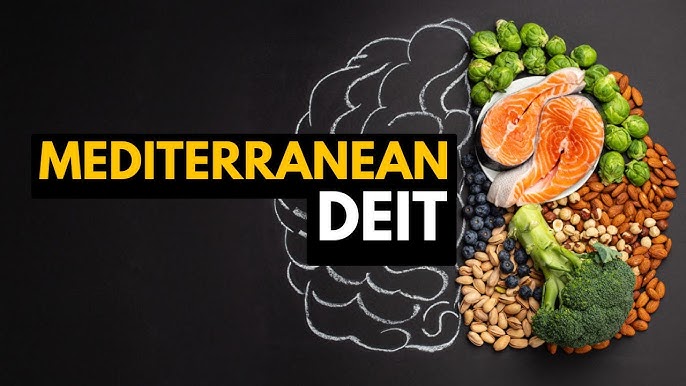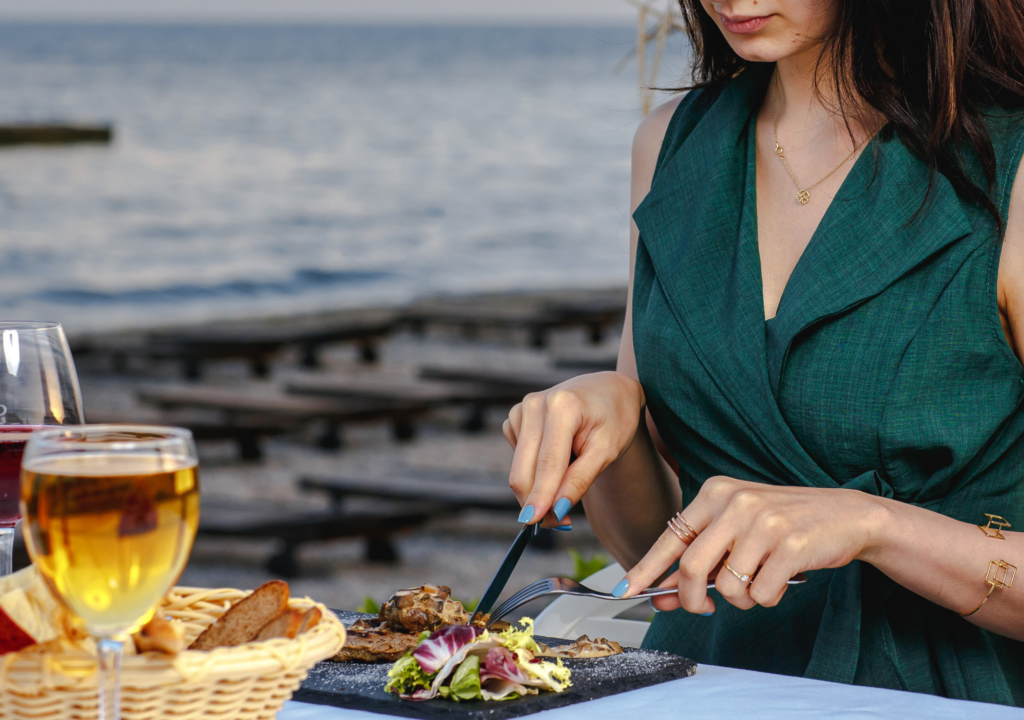Mediterranean Lifestyle Recipes: A Delicious Path to Healthy Living

The Mediterranean lifestyle recipes are more than just about food; they represent a way of living that emphasizes balance, health, and enjoyment. Originating from countries bordering the Mediterranean Sea—such as Greece, Italy, Spain, and Turkey—this lifestyle is admired worldwide for its nutritional value and positive effects on well-being.
In this article, we’ll explore what makes Mediterranean recipes special, their health benefits, and some delicious examples you can easily prepare at home.
What Is the Mediterranean Lifestyle?

The Mediterranean lifestyle is a blend of diet, physical activity, and mindful living. It focuses on:
- Plant-based foods like vegetables, fruits, whole grains, nuts, and legumes.
- Healthy fats from olive oil, seeds, and fish.
- Moderate consumption of dairy and poultry.
- Occasional indulgence in red wine and sweet treats.
- Active living with walking, socializing, and outdoor activities.
This lifestyle is often associated with longer life expectancy and reduced risks of chronic diseases.
Why Choose Mediterranean Lifestyle Recipes?
Adopting Mediterranean lifestyle recipes comes with many benefits:
1. Promotes Heart Health
Rich in omega-3 fatty acids and antioxidants, Mediterranean dishes reduce the risk of cardiovascular diseases.
2. Supports Weight Management
High fiber content in vegetables, whole grains, and legumes keeps you fuller for longer, aiding weight control.
3. Boosts Brain Function
Healthy fats from olive oil and fish enhance memory and cognitive health.
4. Encourages Family and Social Bonds
Meals are often enjoyed together, promoting connection and mindfulness around eating.
Key Ingredients in Mediterranean Lifestyle Recipes

When preparing Mediterranean lifestyle recipes, certain ingredients form the foundation of this healthy diet:
- Olive Oil – The primary source of healthy fat.
- Vegetables & Fruits – Tomatoes, cucumbers, eggplants, leafy greens, and citrus fruits.
- Whole Grains – Brown rice, bulgur, barley, and whole wheat bread.
- Legumes – Lentils, chickpeas, and beans.
- Seafood – Salmon, sardines, and tuna.
- Herbs & Spices – Basil, oregano, garlic, and rosemary for natural flavoring.
- Nuts & Seeds – Almonds, walnuts, and sunflower seeds for healthy snacking.
Easy Mediterranean Lifestyle Recipes to Try
Here are some delicious and simple Mediterranean lifestyle recipes that can bring health and flavor to your table.
1. Greek Salad with Olive Oil Dressing
Ingredients: Cucumbers, tomatoes, red onion, olives, feta cheese, and olive oil.
Instructions: Chop vegetables, toss with olive oil, and sprinkle feta cheese for a refreshing side dish.
2. Mediterranean Hummus Platter
Ingredients: Chickpeas, tahini, olive oil, garlic, lemon juice.
Instructions: Blend all ingredients into a smooth paste. Serve with whole wheat pita or fresh veggies.
3. Grilled Salmon with Lemon and Herbs
Ingredients: Salmon fillets, olive oil, lemon juice, garlic, and dill.
Instructions: Marinate salmon in olive oil and lemon juice, then grill until flaky. Pair with roasted vegetables.
4. Mediterranean Lentil Soup
Ingredients: Lentils, carrots, celery, onion, garlic, olive oil, and spices.
Instructions: Sauté vegetables, add lentils with broth, and simmer until soft. A hearty and comforting meal.
5. Stuffed Bell Peppers with Quinoa
Ingredients: Bell peppers, quinoa, tomatoes, olive oil, chickpeas, and herbs.
Instructions: Cook quinoa, mix with chickpeas and tomatoes, then stuff peppers and bake.
Tips for Following Mediterranean Lifestyle Recipes Daily
- Replace butter with extra virgin olive oil.
- Snack on nuts instead of processed chips.
- Include a side salad with every meal.
- Drink plenty of water and enjoy wine in moderation (optional).
- Cook fresh, seasonal ingredients instead of relying on packaged foods.
Challenges of Adopting Mediterranean Lifestyle Recipes
Though rewarding, following a Mediterranean lifestyle has its challenges:
- Accessibility: Fresh produce and seafood may be expensive in some regions.
- Cooking Time: Preparing fresh meals can take more effort than ready-made food.
- Cultural Adjustments: Some may find it hard to cut down on processed snacks and red meat.
However, small steps such as adding olive oil, whole grains, and vegetables to your daily meals can make a big difference.
Myths About Mediterranean Lifestyle Recipes
There are misconceptions about the Mediterranean lifestyle that need to be cleared:
- Myth 1: It’s only about salads and fish.
Reality: The diet is diverse with grains, legumes, soups, stews, and more. - Myth 2: It’s difficult to follow outside the Mediterranean.
Reality: With global markets, most ingredients are easily accessible. - Myth 3: It’s expensive.
Reality: Legumes, grains, and seasonal vegetables are affordable staples.
Mediterranean Lifestyle Beyond Food
The Mediterranean lifestyle isn’t just about recipes; it’s about holistic living. It encourages:
- Physical Activity: Walking, cycling, gardening, or swimming.
- Social Connection: Sharing meals with family and friends.
- Mindfulness: Enjoying food slowly and appreciating each bite.
This makes it not just a diet but a sustainable way of life.
Conclusion: Embrace Mediterranean Lifestyle Recipes for Wellness
The Mediterranean lifestyle recipes offer more than tasty dishes—they provide a gateway to healthier, happier living. By incorporating olive oil, vegetables, legumes, and fresh seafood into your meals, you nourish your body while honoring a tradition rooted in balance and wellness.
Whether it’s a simple Greek salad, a warm bowl of lentil soup, or grilled fish, these recipes make healthy eating both enjoyable and sustainable. Start small, experiment with Mediterranean flavors, and experience the benefits of this timeless lifestyle.

Aiman Fatima
August 18, 2025✨ “The Mediterranean lifestyle truly proves that healthy eating doesn’t have to be restrictive or boring. Fresh vegetables, whole grains, olive oil, and lean proteins not only support heart health but also make meals incredibly flavorful. What I love most is how these recipes emphasize balance, community, and enjoyment—showing that wellness can be both nourishing and delicious.”